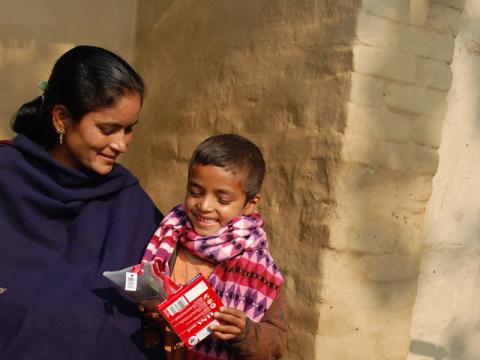Child Clubs helping girls stop child marriage

The story of Kala reflects the situation of many Nepali women who get married at an early age. She belongs to the ‘Dalit’ community who are uniquely disadvantaged as they are considered to be the lowest status in Nepali society.
At the age of 32, Kala is a widow and a grandmother. When she married at the age of 15 she was just a child and didn’t know of the consequences. Soon she had a daughter followed by three sons.
When she was expecting her youngest child, tragedy struck the young family. Her husband, who was working in India as a migrant worker, died at the age of just 27, leaving her to take care of four children.
Kala faced many challenges raising her children and sending them to school. She worked as a daily wage labourer in her village to provide for her children, with some help at home from her mother-in-law.
However her worst fears came true when her 15 year old daughter dropped out of school and eloped with a boy in the community. She regrets her daughter didn’t complete her schooling and that she couldn’t stop her daughter from having a child at such a tender age.
* * *
“If I had been born in this generation, I would not have married… and I want my children to marry only after they have grown up and can live on their own,” says Thuli, a farmer and mother of five girls.
Thuli too was married at the age of 15, but against her will. She dared to tell her family she didn’t want to get married and ended up being beaten by her grandfather.
“There was a culture of marrying young and unlike today, no one talked to our parents about the disadvantages of getting married early,” she says.
Thuli’s resolve was tested three years ago when her third daughter, Saili, was approached for marriage. Saili didn’t want to marry and told her parents to reject the offer. Saili is a member of Sunagava Child Club, which is supported by World Vision.
“I learnt that getting married would affect my studies; that I would have to take huge responsibilities in my husband’s home, and probably have a baby early which would affect my health in many ways,” says Saili.
Thuli is very happy with her daughter’s decision not to marry so young. “I could have studied, had fun with friends, lived in my parents’ home and wouldn’t have had to do backbreaking chores if I hadn’t married early,” she says musing.
“I missed so much at that age and instead had to work very hard at my husband’s home, even when I was pregnant and immediately after child birth, taking care of my five daughters,” she adds.
By Alina Shrestha and Sunjuli Kunwar